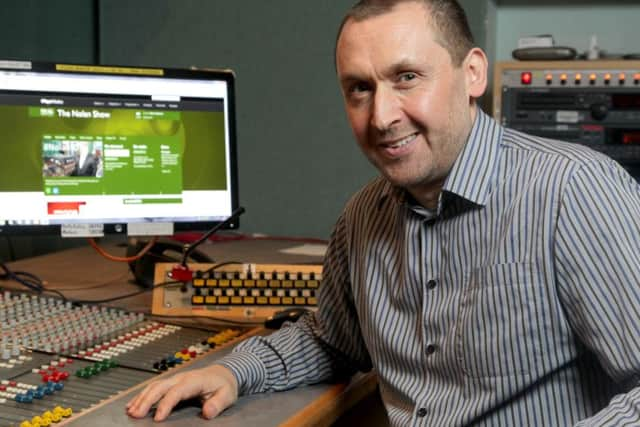ALEX KANE: New spin chief Gordon must play his part in ending the culture of secrecy


Andy Coulson, a former editor of the News of the World, was appointed David Cameron’s Director of Communications; and was followed by Craig Oliver, a former BBC journalist.
All three were, as were many similar appointments over the years in both Westminster and the devolved bodies since 1997. headhunted for the role. So the appointment of David Gordon as Executive Press Secretary, while it clearly caught just about everybody on the hop, is not unusual.
Advertisement
Hide AdAdvertisement
Hide AdThe authority to appoint him came through an arcane route, which, as Sam McBride noted in the News Letter on Saturday, “was passed under the same principle which allowed medieval kings to issue decrees without consultation.” I summed that up in a tweet: “There’s irony for you. A Sinn Fein minister using a secretive power once exercised by medieval kings to avoid scrutiny!”


As someone who has championed transparency when it comes to the appointment of key players in government (and that includes the appointment of the special advisers chosen by ministers, something the UUP, SDLP and Alliance were doing until quite recently, by the way) I do have some concerns about the secrecy that has surrounded Gordon’s appointment. I would also like to see his job description and range of powers; specifically, what will he do that cannot be done by the existing communications team around the First and Deputy First Ministers and will he have any say in when, or how, individual ministers deal with the media?
Green Party leader Steven Agnew raised another interesting point in yesterday’s Sunday Politics, when he wondered if Gordon was appointed to ‘dig up’ stuff (he was a former investigative journalist, after all) on Opposition, as well as protect the Executive.
It is worth noting, however, that the role of a dedicated executive press officer would probably not have been possible between 1999 and May 2016, because for most of that period the Executive was congenitally, clinically dysfunctional. The parties and ministers briefed against each other on a daily basis, disagreed on most things, didn’t have consensus on a Programme for Government and operated on a silo mentality basis rather than by collective responsibility. In other words, it would probably have been impossible for a dedicated executive press officer to get agreement on a form of words for any statement.
Advertisement
Hide AdAdvertisement
Hide AdIt is further worth noting that the creation of an official Opposition, and its joint occupation by the UUP and SDLP, has changed the game. Opposition means that the Executive will come under sustained scrutiny and criticism both inside and outside the Assembly. And an Executive which consists almost exclusively of the DUP and Sinn Fein (along with Claire Sugden) is an Executive which needs to be seen to stand together in a way it has never done before. So it makes sense to appoint their own dedicated press officer: particularly one who will know how to coordinate a response, who will know the sort of issues which will interest the media and who will know how to promote positive things.


I have spent years knocking the Executive, particularly their inability to work together and have said on many occasions that the, “it’s better than it used to be,” or “we don’t want to be dragged back to the bad old days” responses to criticism were pointless and pathetic responses. I have also been on the Nolan Show, of which Gordon has been editor, setting out concerns about the nature and priorities of government here. So yes, it was a surprise to learn that Gordon (who would have been responsible for briefing Stephen Nolan before his interviews with ministers) was shifting from poacher to gamekeeper. And it will be interesting to see how the show responds to this story: because I’m pretty sure that it would be the lead item if the journalist was anyone other than Gordon.
Ironically, the biggest test for him may be the very programme that he has steered so brilliantly in “bringing you the big stories”.
Would it have been better had his appointment followed a public and open process of advertisement followed by interview? Yes. Northern Ireland remains a place where suspicion about almost anything to do with politics is a key aspect of everyday life; and where there has been a growing discontent and disconnect between the government and the governed. David Gordon, whom I know, like and respect, is a very good, very canny appointment. But it is an appointment which is now overshadowed by claims of secrecy and accusations that his role is to be a personal ‘minder’ for Foster and McGuinness; leading to the absurd situation of someone in the Executive Office having to issue a firefighting statement in defence of someone they have hired as a firefighter!
Advertisement
Hide AdAdvertisement
Hide AdBut once the dust has settled, we still need to know what David Gordon has been hired to do. I hope that he will play a part in ending the culture of secrecy that has been the hallmark of politics here. But that will be a little harder to do against the background of secrecy and nod-and-wink agreement that has accompanied his appointment. Nevertheless, good luck to him.